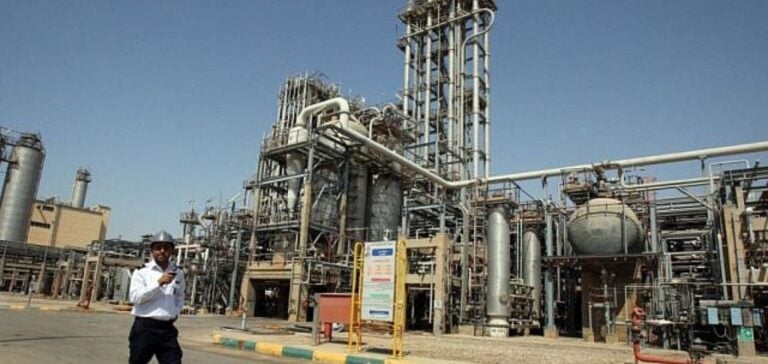Iran continues to consolidate its position in the global petrochemicals market, despite the severe sanctions imposed by the USA and Europe.
For the fiscal year beginning March 2024, Tehran plans to increase its petrochemical production to 83 million metric tons, up from 75 million tons the previous year.
At the same time, exports are set to increase from 30 to 34 million metric tons.
This expansion strategy is underpinned by solid trade relations, notably with Russia, a major outlet for Iranian products.
Sanctions and circumventing financial obstacles
The sanctions imposed by the United States in February 2023 were aimed at stepping up pressure on Iran’s petrochemical sector.
These measures targeted nine companies involved in trading Iranian petrochemicals with Asian buyers.
Despite these obstacles, Iran continues to ship its products to diversified markets, including Africa, South America, Asia and Eastern Europe.
The restrictions, while problematic for financial transfers and banking operations, have not halted Iran’s trade, according to statements by Morteza Shahmirzaee, Deputy Oil Minister in charge of petrochemicals.
Trade with Russia has increased, not least because of the region’s complex geopolitical situation.
With European sanctions against Russia and Iran, both countries have a shared interest in developing alternative energy export routes.
These exchanges are growing in a context where Iran is seeking to maintain its competitiveness against other regional producers, such as Saudi Arabia, whose ethylene production capacity is more than twice that of Iran.
Production and price dynamics on the world market
On the world market, prices for ethylene, one of the petrochemical sector’s key products, rose during 2024.
The benchmark price reached $886.52 per metric ton in early September, its highest level since July 2022.
This price rise can potentially support Iran’s export ambitions, especially as the country plans to produce 7 million metric tons of ethylene in the coming year.
Other products such as methanol and urea, with planned production of 10 and 8 million tonnes respectively, also play a central role in Iran’s export diversification strategy.
The domestic market also remains a priority for Tehran.
Some 13 million tonnes of petrochemical products are destined for domestic consumption, notably in the form of reformates for gasoline octane enhancement and naphtha for olefin units.
Major petrochemical facilities, such as those at Tabriz, Imam Khomeini and Shazand, remain key players in this domestic consumption dynamic.
Investments and future growth prospects
Iran is not content to maintain its current production levels.
Between now and 2029, the country plans to add 35 million tonnes a year of new capacity in the petrochemical sector.
These investments are aimed at strengthening its position in the global market while exploiting new opportunities, particularly in Asia and Eastern Europe.
Iran is thus seeking to reduce its dependence on traditional financial channels by strengthening its bilateral agreements and cooperation with strategic partners, bypassing the difficulties associated with dollar transactions and foreign currency management.
These expansion plans also indicate an intention to capitalize on future price movements in the global petrochemicals market.
By focusing on products such as ammonia and ethylene, Iran could not only consolidate its market share but also attract new customers, particularly in developing countries where demand for petrochemicals continues to grow.
Challenges and adaptation strategies in the face of geopolitical constraints
Iran remains aware of the risks associated with its expansionist ambitions. International sanctions, particularly those imposed by the United States, remain a constant challenge.
However, the emphasis on market diversification, increased production capacity and the establishment of new alliances show that Iran is ready to adapt and innovate.
The aim is to minimize the impact of financial restrictions while optimizing supply chains and export routes.
In conclusion, the Iranian petrochemical sector represents an example of resilience and complex economic strategy in an unstable geopolitical environment.
The next few years will be crucial in measuring the effectiveness of these approaches in the face of increasingly restrictive sanctions and a changing global energy market.






















